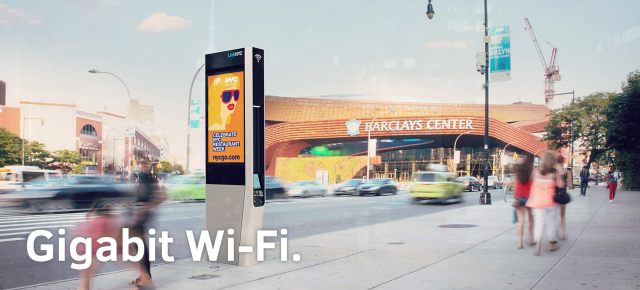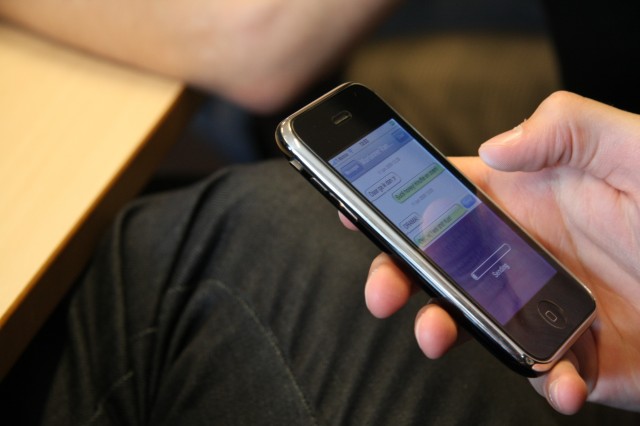A charity is to give away 2,000 Talking Book audio computers to some of Ghana’s poorest communities after securing funds from Unicef and ARM.
Category Archives: Humanitarian
Researchers Craft A Battery That Can Be Recharged with Waste Heat
Pretty much anything we do that involves energy, from generating electricity to using it in a laptop, produces energy in the form of heat that ultimately goes to waste. The problem is that all of the means we have of converting heat into useful energy require large temperature differences. The waste heat, by contrast, is a low-grade energy source, usually involving temperature differences of less than 100 degrees Celsius.
So far, attempts to find ways of producing useful energy from waste heat have largely focused on thermoelectric devices, which directly convert temperature gradients to electricity. But these devices generally cost a lot to produce, so the economics of using them to capture waste heat are pretty questionable. But now researchers have produced a demonstration of a device that acts more like a battery that can be charged or discharged based on temperature differences. Although it’s not especially efficient, the ability to store charges may add significantly to its utility.
The research team involved in the work (a collaboration between people at MIT and Stanford) had previously demonstrated an actual battery that took advantage of temperature differences. In that example, which relied on a copper-based chemical reaction, charging and discharging took place at two different temperatures. At an elevated temperature (perhaps one provided by waste heat), the voltage difference needed for charging was lower than it would have been otherwise. By dropping the battery to room temperature during discharge, their battery produced a higher voltage. In essence, the temperature difference was used to get more useful current out of the battery.
Read 6 remaining paragraphs | Comments
Cue Gets $7.5 Million to Build $199 Home Flu-Testing Device
One of Uber’s earliest investors is betting that millions of consumers will one day test themselves for the flu and other medical conditions.
NYC to Blanket the City in Free Public Wi-Fi with 10,000 Stations

A new “communications network” called LinkNYC announced plans Monday to turn all of the payphones in New York City into public Wi-Fi stations. The kiosks, which are taller and narrower than the average phone booth but preserve the advertising space, will have “up to gigabit speeds” and charging stations for devices, according to a press release Monday.
New York has been trying to figure out what to do with its decrepit payphones for years. In 2012, the city did a very small-scale rollout of Wi-Fi hotspots at 10 phone booths, and in 2013, the Department of Information Technology and Communications solicited and displayed proposals for redesigning and repurposing the booths into something more sightly and useful.
The network, LinkNYC, is a “public-private” partnership between the Mayor’s Office of Technology and Innovation, DoITT, and CityBridge, a collective of New York companies that includes Qualcomm, Antenna, Comark, and Transit Wireless (the company that has installed Wi-Fi in 47 stations of the city’s subway system). In addition to being Wi-Fi hotspots, LinkNYC kiosks will also have touch screens for accessing information about the city and will allow free domestic phone calls.
Read 2 remaining paragraphs | Comments
Google Asks Users To Help Fight Ebola — And They Answer With Cash
For the first time ever, Google reached out to users in a matching campaign to help fund Ebola treatment and prevention. The company’s philanthropic director explains why.
Researchers Tap Web Chatter To Figure Out Who’s Sick
With the help of online data, doctors and public health officials are tracking the spread of illnesses and predicting where they might strike next. The analyses also provide clues for prevention.
Apple’s Siri Helps Autistic Teen With Communication Skills
We hear from author Judith Newman, a mother with an autistic son, who wrote in The New York Times about how Siri, the voice from her iPhone, touched her autistic son.
Robot Bees Could Assist With Tricky Rescue Operations
Robert Wood, an electrical engineer at Harvard’s Microrobotics Lab, is engineering colonies of RoboBees. They don’t sting, and they can be used for surveillance or crop pollination.
How One Boy With Autism Became B.F.F.’s With Apple’s Siri
How one 13-year-old boy with autism became B.F.F.’s with Apple’s Siri![]()
When Disaster Strikes, Facebook Lets Friends Know You’re OK
Facebook’s newest tool, known as Safety Check, aims to allow people to quickly alert friends and family that they are safe after a natural disaster.
SMS Service Could Spot the Next Ebola Outbreak Zone
An Australian doctor is raising funds to launch an SMS service in West Africa that sends people to the right medical facilities based on key words used and crunches that data to look for the next outbreak spot.
“During my missions with Médecins Sans Frontières I have always noticed that no matter how distressed the populations we served, someone always had a mobile phone,” Mohamad-Ali Trad, who has a masters in public health and tropical medicine, tells WIRED.co.uk. “We did some research and actually found out that most areas traditionally considered under-resourced do have a mobile phone coverage.” As mobile penetration on the continent continues to rise, SMS money transfer services like M-Pesa are common in parts of East Africa, and Western Union is hoping to capitalize on penetration in Western countries to launch its payment service with MTN.
It is also certainly not the first time an SMS service has been used during a period of emergency or outbreak. Even in April, as Ebola began to creep from Guinea to its neighbors, SMS messages were used to raise awareness about symptoms and protective measures. A similar system has been used in the past during cholera outbreaks, most recently in Mozambique in 2013.
Read 11 remaining paragraphs | Comments
BBC Launches WhatsApp Ebola Service
BBC launches Ebola public health information service on WhatsApp, aimed at users of the service in the worst-affected countries.
Outernet Gets Data to the Unconnected
A radical scheme to provide data to the unconnected
Anti-Ebola text tech set to expand
Charities plan to expand a system that allows Ebola advice to be texted to mobile phones located inside a specific contagion zone.
Concrete 3D Printer Used to Build Castle… In Minnesota- 2 September 2014
2 September 2014- Geek Exchange
Concrete 3D Printer Used to Build Castle… In Minnesota
Cell-Phone Data Might Help Predict Ebola’s Spread- 22 August 2014
22 August 2014- MIT Technology Review
Cell-Phone Data Might Help Predict Ebola’s Spread
The Emerging Science of Computational Anthropology – June 10, 2014
6/10/2014- Technology Review
The Emerging Science of Computational Anthropology
How Bitcoin Helps Afghan Girls Achieve Financial Freedom – June 7, 2014
6/7/2014 – Coin Desk
How Bitcoin Helps Afghan Girls Achieve Financial Freedom
Tor Is Being Used as a Safe Haven for Victims of Cyberstalking- 9 May 2014
9 May 2014- Vice News
Tor Is Being Used as a Safe Haven for Victims of Cyberstalking
Site lets people search satellite images for lost Malaysian plane- 11 March 2014
11 March 2014- CNet
Site lets people search satellite images for lost Malaysian plane

